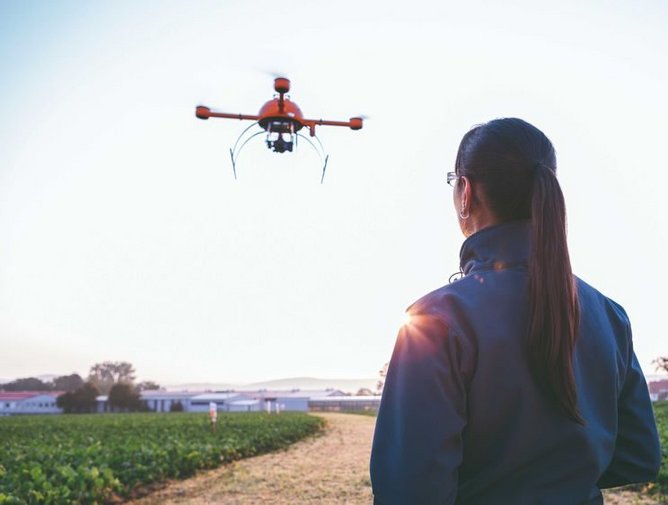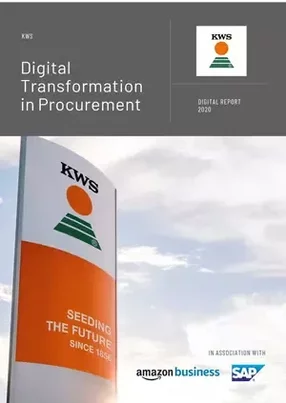KWS is one of the world’s most renowned plant breeding companies. Founded over 160 years ago, KWS focuses on plant breeding and the production and sale of seed for corn, sugarbeet, cereals, rapeseed, sunflowers and vegetables.
Peter Hagenow is the Head of Strategic Procurement at KWS. Having joined the organisation in November 2018, Hagenow possesses over 15 years of international experience in large and medium sized industries and has held positions in sales, procurement, manufacturing and general management. Upon joining KWS, Hagenow set a roadmap and began to transform the procurement function. “When I joined the company, I was on my own in the global procurement department and it took some weeks before anyone else joined,” he explains. “At the same time, we were starting to develop the global transaction centre which my equal, Maik Mueller, headed up as the team lead. Both of us then began to create our teams and to set up the process landscape. My primary role was to search for category managers both internally and externally to create a team of true experts in procurement. Today, the teams are close to being completed and we’ve started to integrate bots on the operational side, while having a true expert network on the more strategic side.”
Under Hagenow’s leadership, KWS is connecting all 70 of the countries it serves through its centralised procurement function in Berlin. “We’re over halfway through and have connected about 65% of our workforce globally,” he explains. “The next step is to stabilise the core and add more strategic processes to the digitalisation agenda. Ultimately, we want to make purchasing as simple as possible and it should be as easy as doing online shopping at the weekend. We want that same experience and to make it as streamlined as possible. To try and make this happen, we’ve set up electronic catalogues in our purchasing system that allows you to check out in six clicks only and make it easy for our internal customers. That’s what we’re constantly striving for.”
Hagenow has observed how digitalisation has transformed purchasing and recognises the trend of buying online. “We all buy something almost every day and we love to buy online. Nobody finds this process difficult and we find efficiency is very high,” explains Hagenow. “This is also expected of modern purchasing. Digitalisation allows us to reach the desired goal in a few simple steps. With only a few clicks, the office supplies are ordered in a catalogue system. Algorithms help us to find even more optimal ordering slots. Approvals are made on the road by mobile phone. Contract texts can be evaluated automatically, signatures via computer have become standard. Ordering by voice or chatbot are reality. A number of years ago, it was my aim to have a fully paperless office and I believe we will make this a reality very soon.”
“However, this means that we have to be able to control the data that accumulates, i.e. make it available for evaluation and use. This is a new requirement for purchasing. But we should not and must not be afraid of change. I believe that with all the automation and optimisation, manpower will not be lost. It will look different in the future, maybe we will automate purchasing as far as possible. The concepts, the contents and the control of the systems will simply become more important and job descriptions will change accordingly.”
Hagenow believes one of the biggest benefits of a centralised procurement process is creating one unified way of doing things to make the process more efficient. “With purchasing, if you have one unified way of doing things then it allows you to think about automation,” says Hagenow. “During the last two years, we’ve set up the procurement processes in a way where the approval of a purchase is done at the very beginning. For example, if I want to buy a type of equipment above a certain threshold and my manager needs to approve it to ensure we have the budget then this can be easily done. This means that when it’s all approved and the item is delivered, we don’t need to look at the invoice anymore, we can automate the payment. This is why it’s important to have a centralised procurement process.” Over the past two decades, Hagenow believes that the job profile of the buyer has transformed as the world continues to embrace digitalisation at scale. “Digitalisation is the keyword,” he explains. “ERP systems have been occupying us for some time now, the operative buyer has become less and less a mere typist who somehow transports the order into the ERP, and is increasingly developing into a Content & RPA Manager. At the same time, strategic purchasers are less and less required to approach the supplier base with a club on their back, but rather to seek strategic approaches and partnerships.”
With over 160 years of experience in the industry, Hagenow acknowledges the added challenge of convincing every employee to transform operations and the day-to-day process. “Our company has been around for such a long time that it makes it more challenging to change the process,” he explains. “We constantly get asked: why change something that works? So, this took a little time to get everyone onboard. The larger the company, the more complex it gets to drive digitalisation and we have to remember that we’re not a small company anymore. It’s vital to sell your idea and convince people that it’s for the best. I believe it’s important to try and reassure people when it comes to digitalisation and help make them understand that there is no danger to new technologies.”
Having partnered with SAP for a number of years, Hagenow understands the importance of key, strategic collaborations to success. “In the beginning, Maik and I needed to connect to the business so that we could build the procurement function. Our company has used SAP for decades so we were reaching out to them to search for the right tool for us,” he says. “One of the best things about working with SAP is that when we have a certain development need, they always listen and try to build our requirements into the products over time. They’re a big reason why after our five year transformation journey, we will almost have a fully digitalised purchasing experience.”
Looking to the future, Hagenow believes that digitalisation will only become more influential and prominent in the supply chain industry. “I think we will see even more digitalisation, not just at KWS but also the sector itself,” he affirms. “I believe that strategic procurement will transition from the pure negotiation of finding other added value and move towards common development with suppliers. There will be lots of new technology implemented that will allow us to manage our day in a quicker and more efficient way and the future is bright.” Hagenow adds that the development of the workforce is essential to long-term success. “We’ve started introducing bots and are looking at our operational purchases of today and reviewing what their role will be tomorrow,” he explains. “All of our employees in Berlin that are working in our transaction centre are multilingual so we’re trying to get connected to all of our countries. We must take care of the workforce of today to ensure they’re equipped with everything they need to succeed for tomorrow.”


- Peter Hagenow

